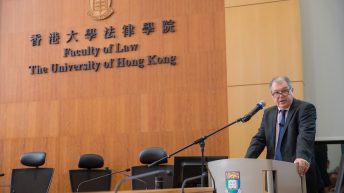Date: 29May 2014
SYNOPSIS:
Hong Kong has a rapidly aging population and a majority of deaths occur in public hospitals. Poorly developed primary care services and a social and legal context that prevents frail seniors from dying at home result in “revolving door” acute hospital readmissions. Recent attention to advance care planning by the Law Reform Commission has led to development and promotion of model forms for end of life planning, but these have not been granted legislative status.
This talk will reimagine the importance of advance care planning as an intervention by caregivers (1) to educate patients and their families, and (2) to introduce patients into end of life programs, rather than focusing on the adoption of legal documents. Several pilot programs have been developed, from direct transfers to extended-care facilities, to electing to receive end of life care entirely in-hospital or to stay in a residential care home until the final moment before being transferred to a hospital for death. Introducing advance care planning to Hong Kong seniors may be seen as a point of contact to enrol patients in programs offering meaningful clarity about end of life choices, and secondarily as a means to open dialogue between patients, families and clinicians and provide elderly patients a valued opportunity to be heard.
FULL DETAILS




